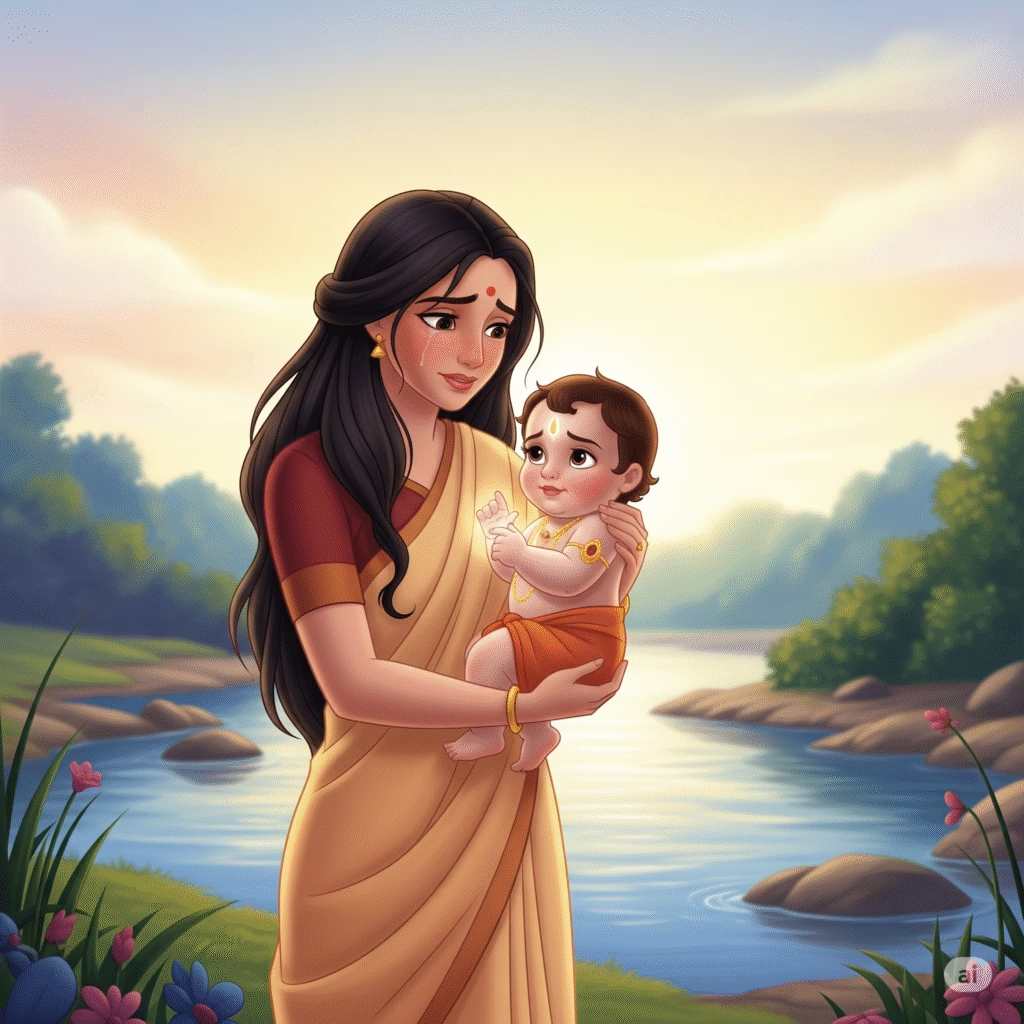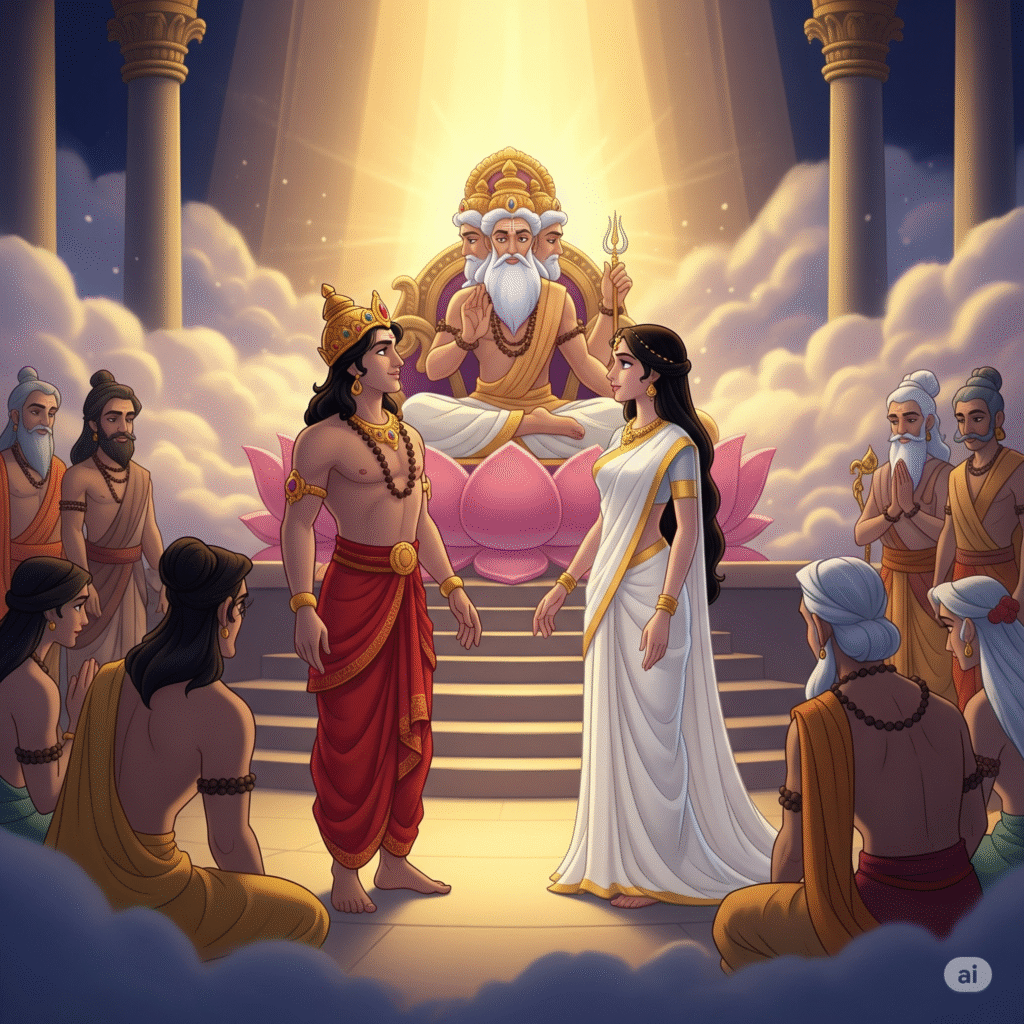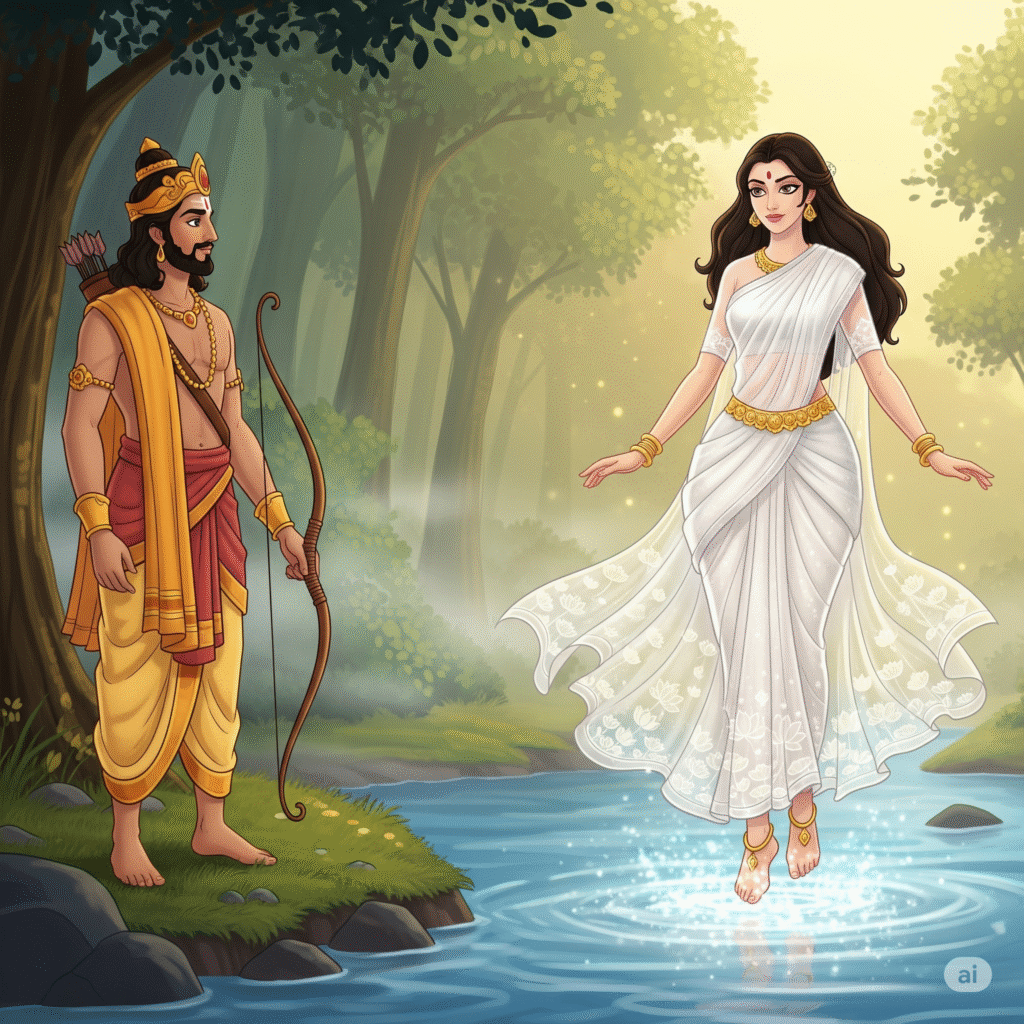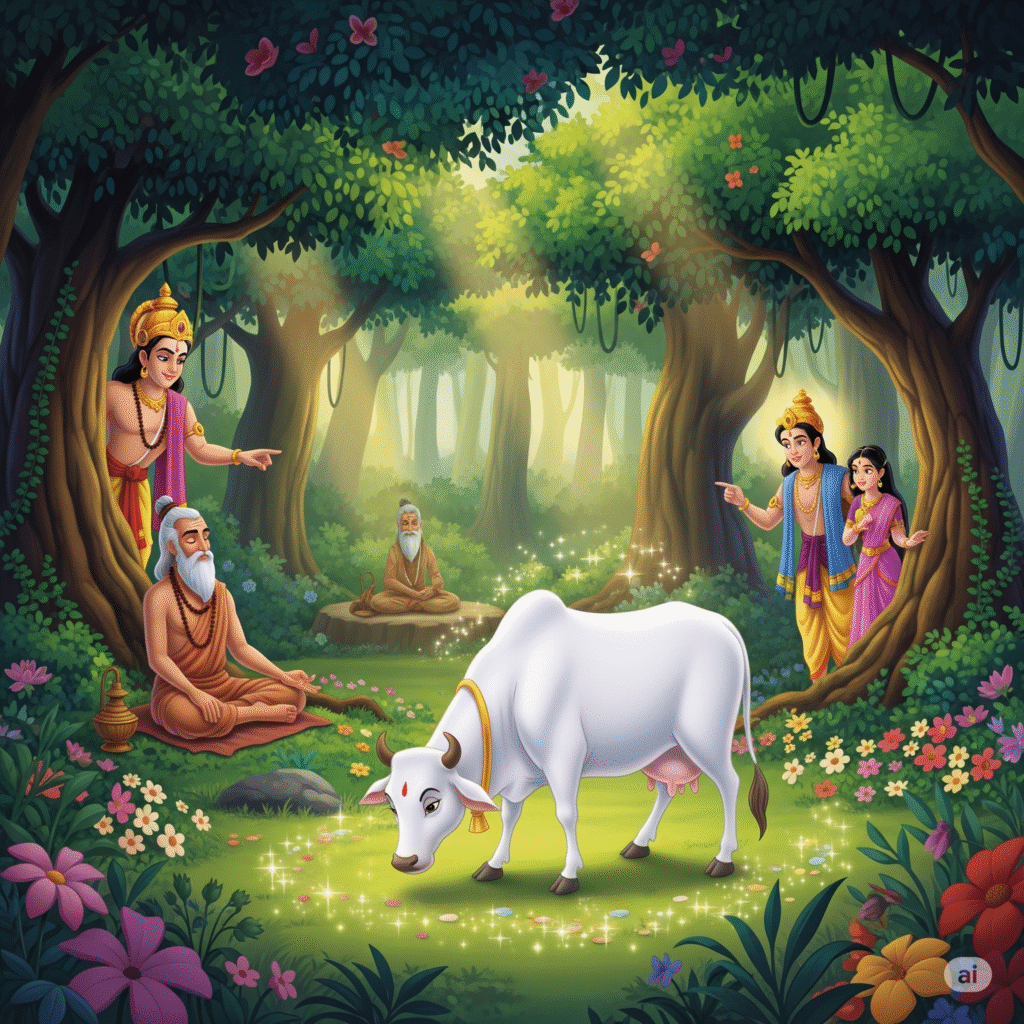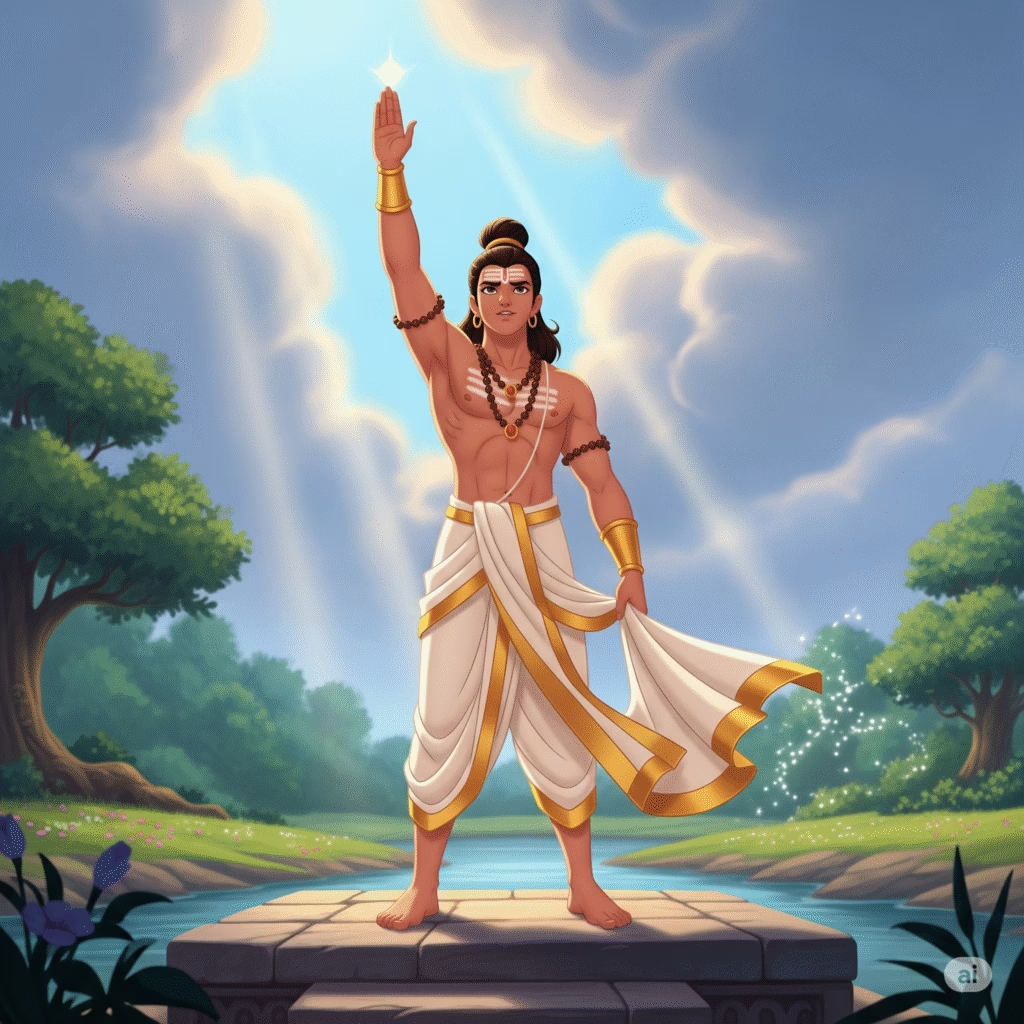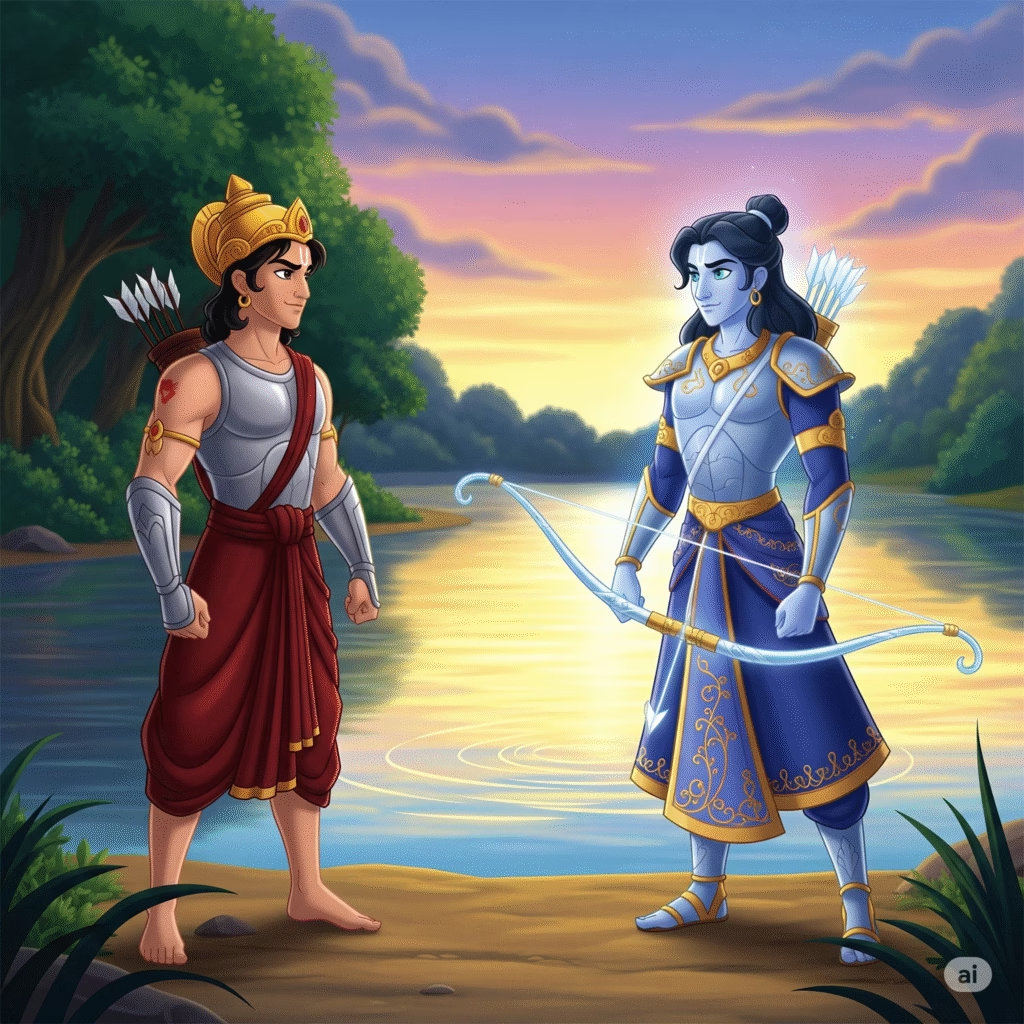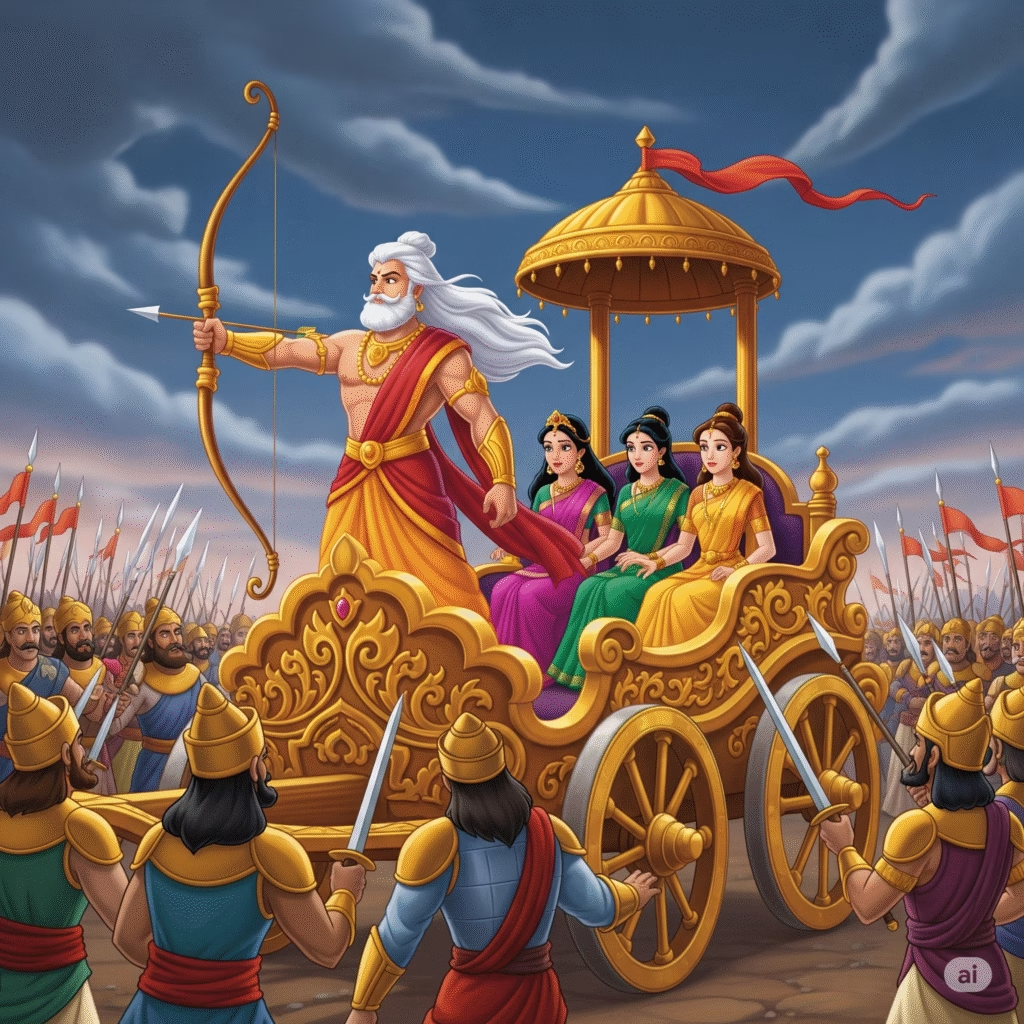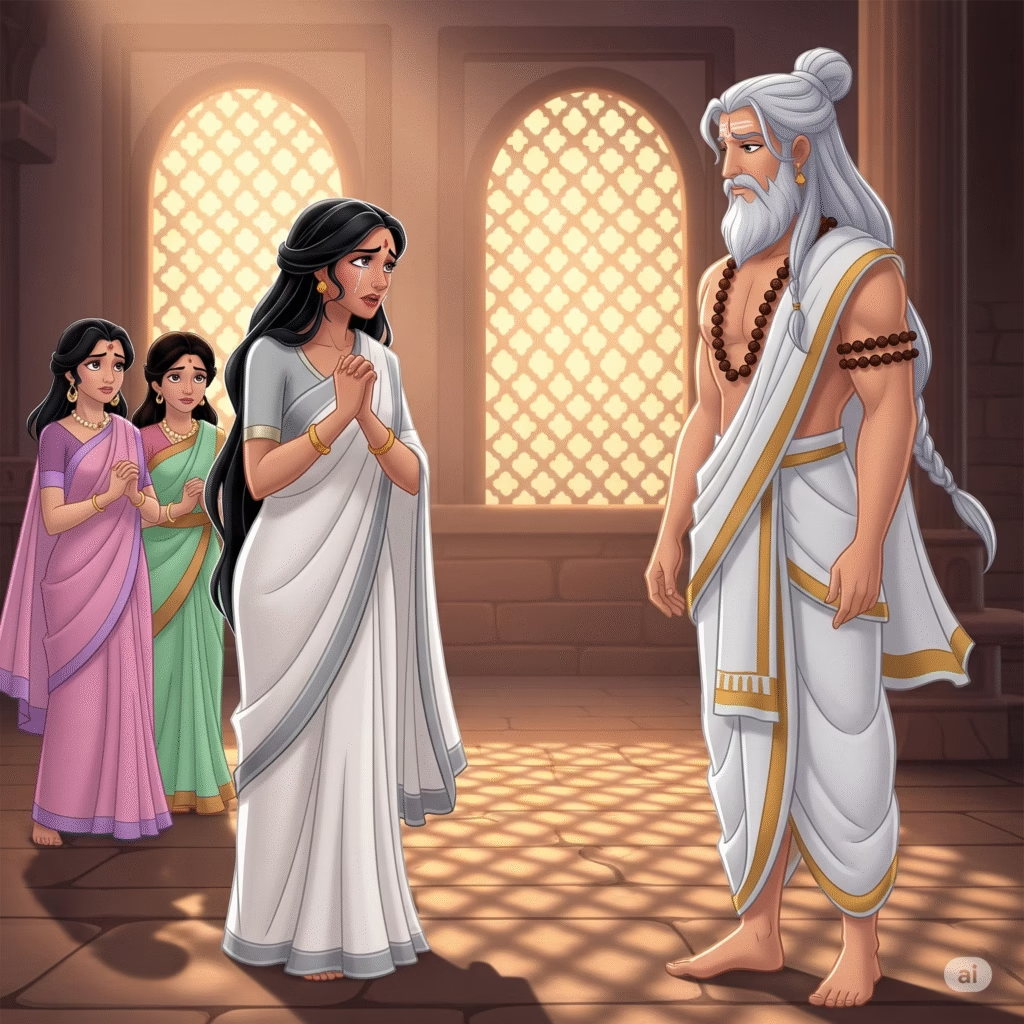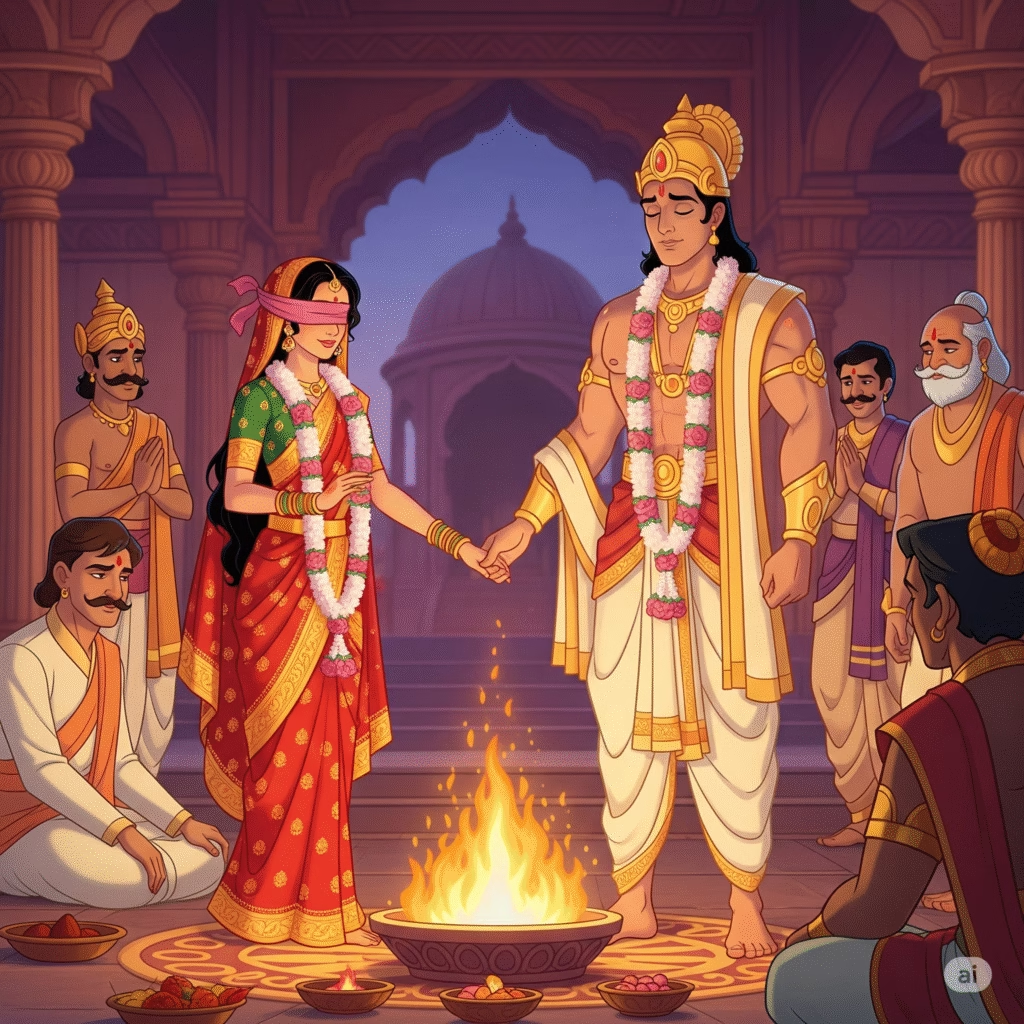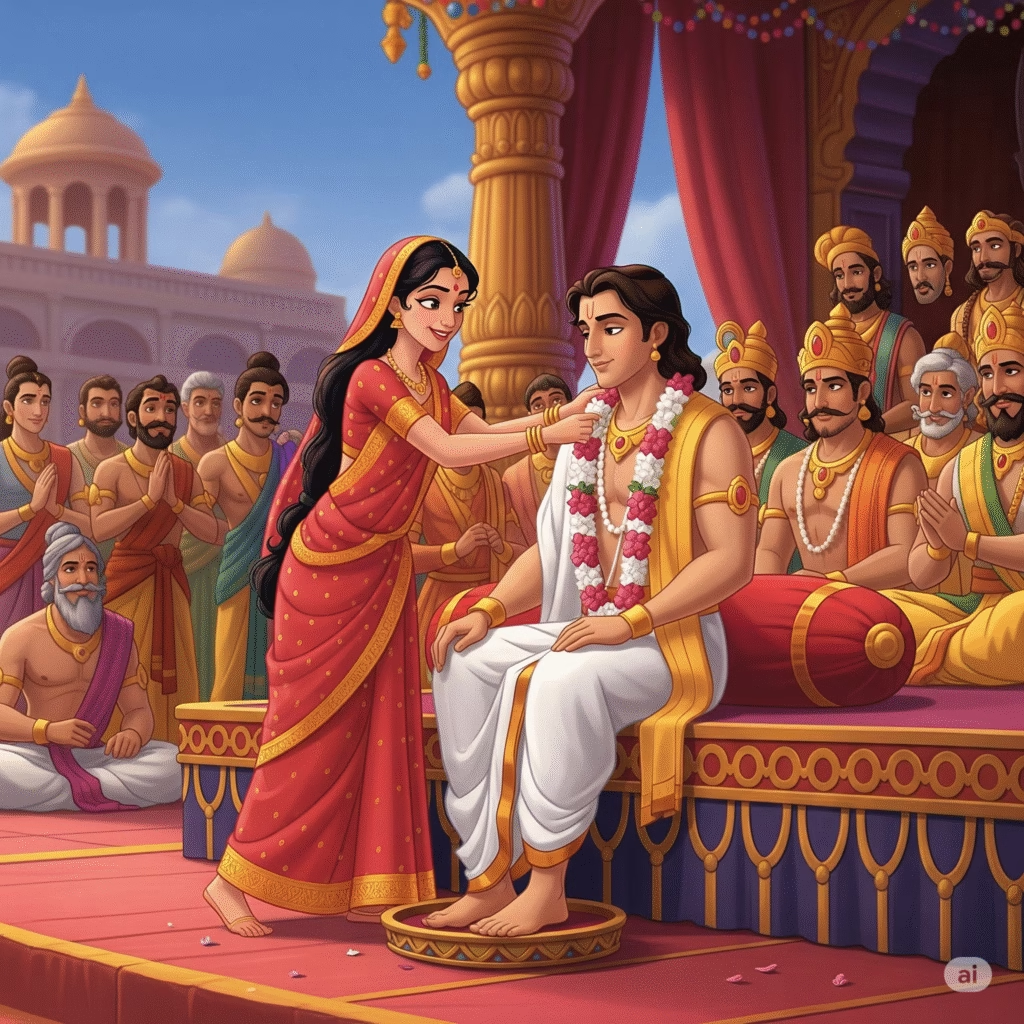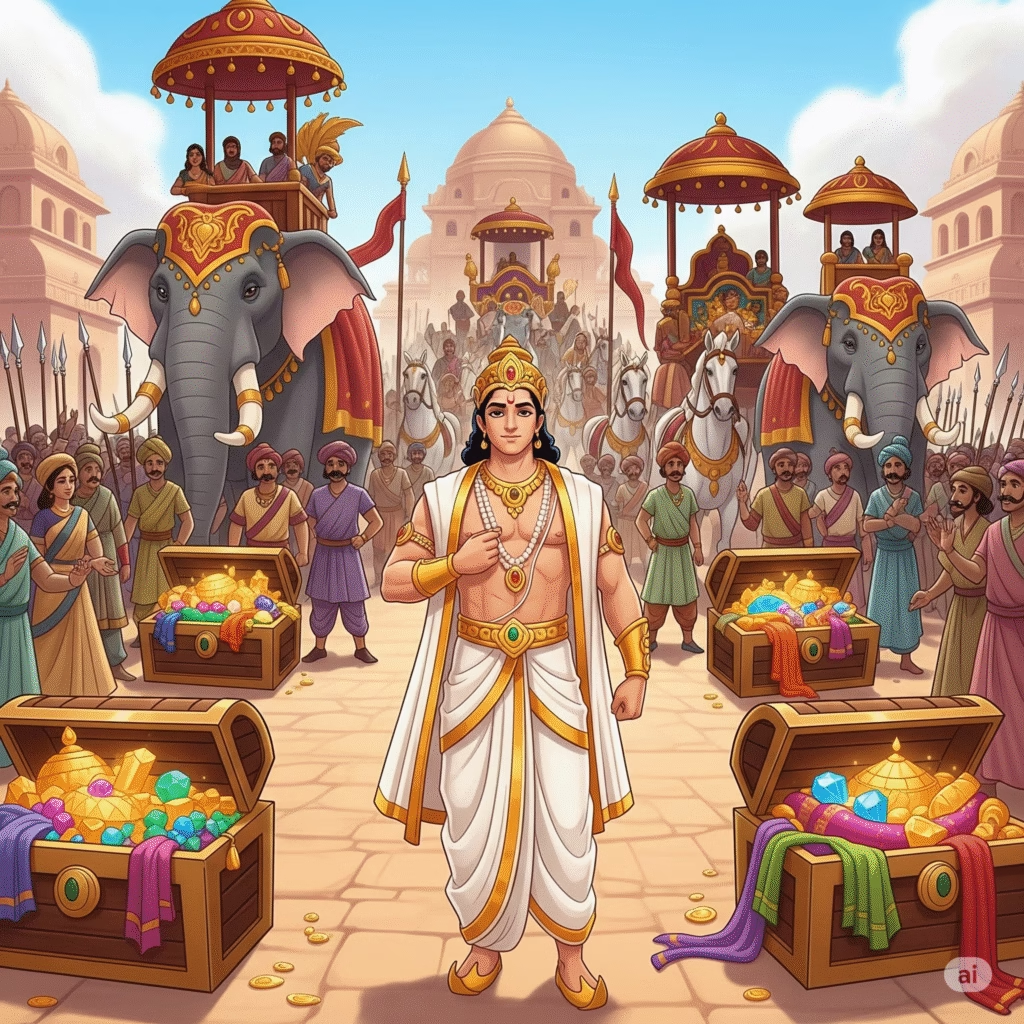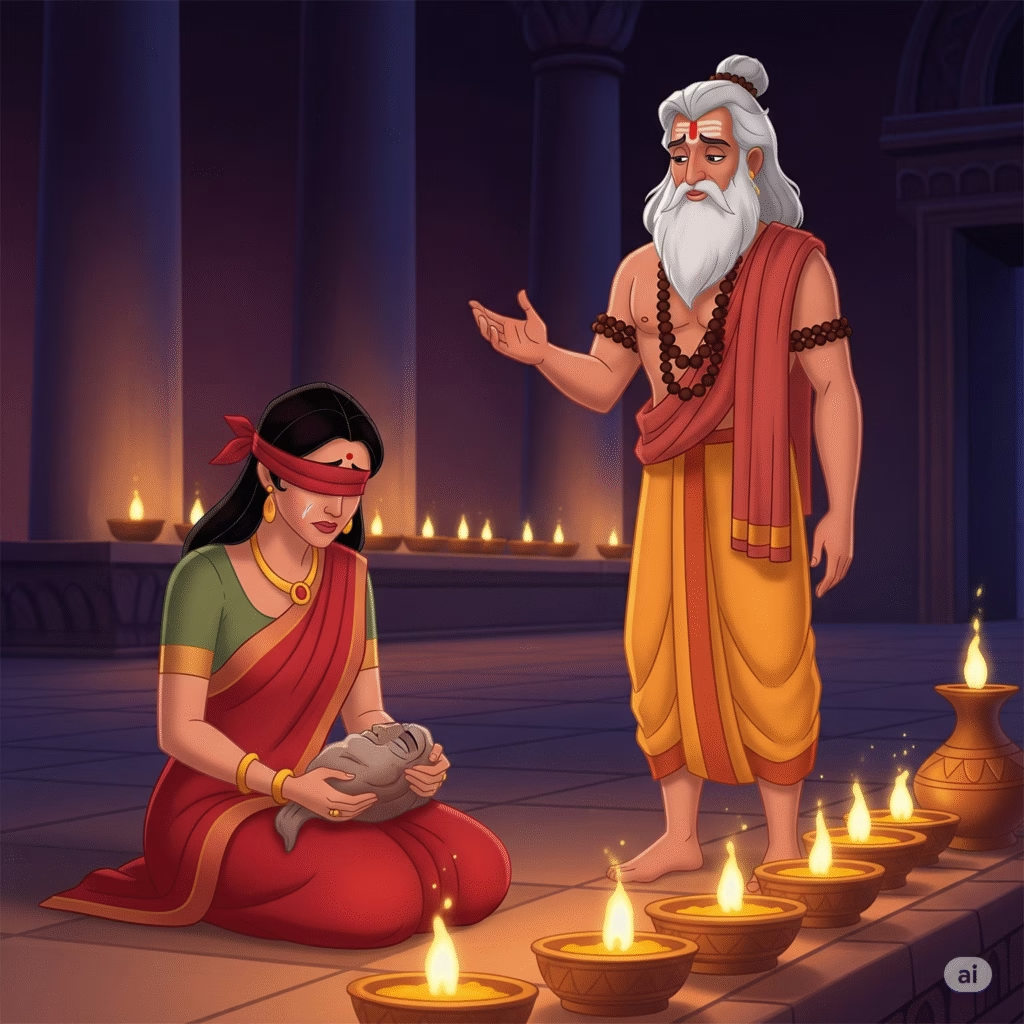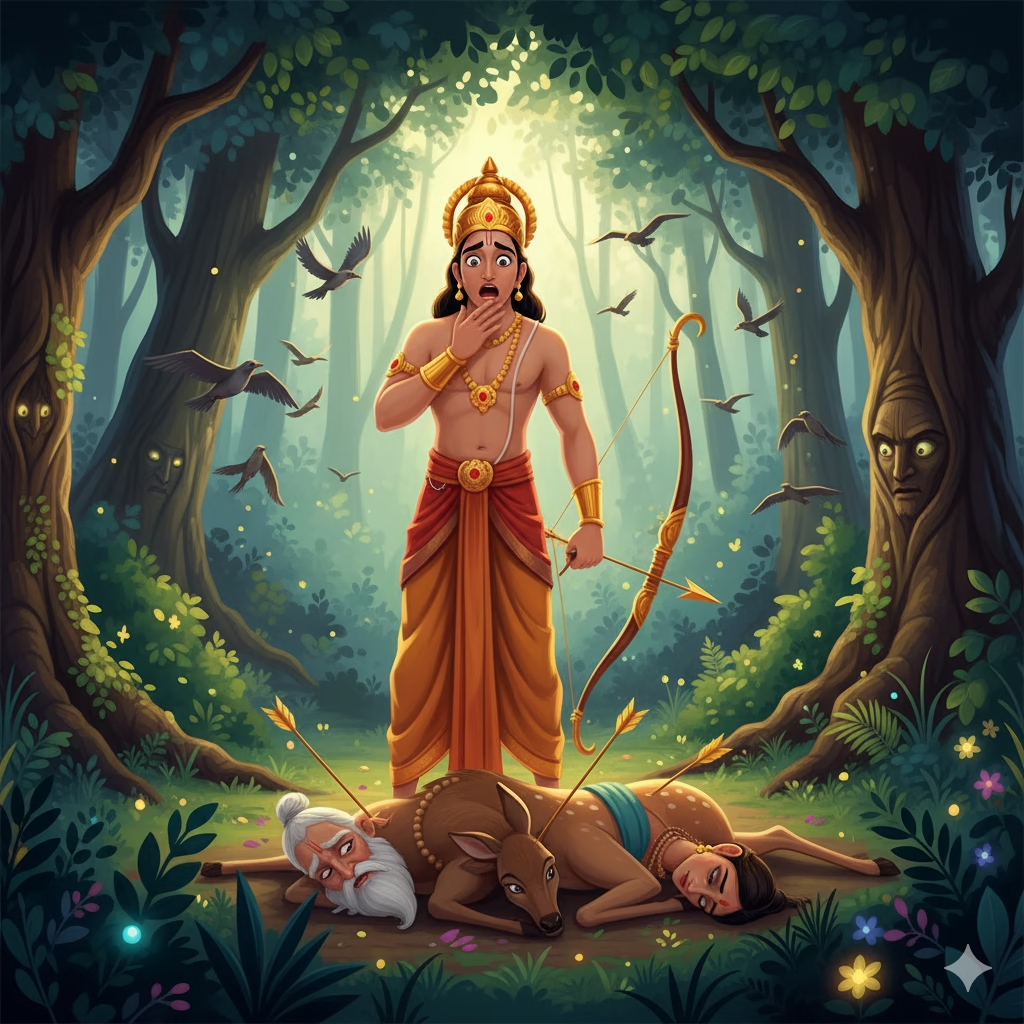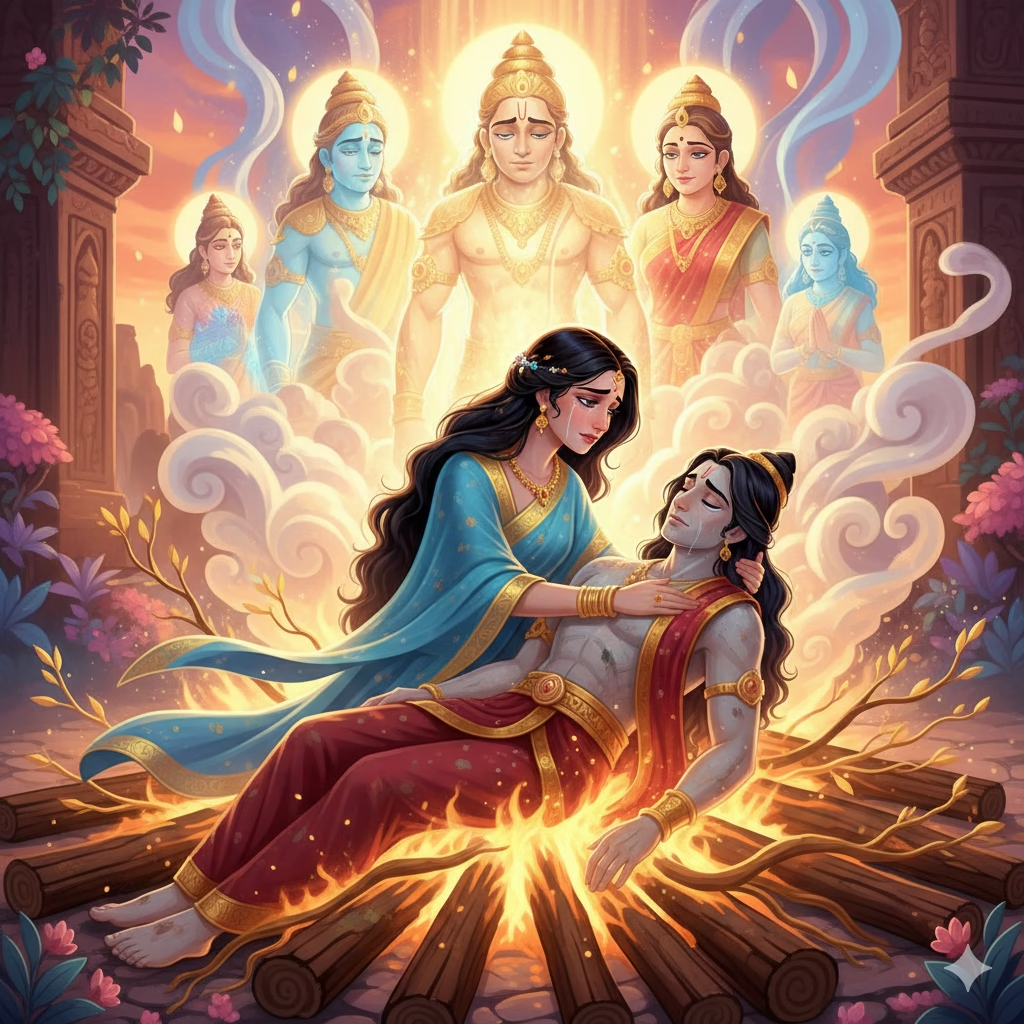In the quiet heart of the Yadava lineage, a princess was born who would one day hold the weight of two dynasties in her silence. Her name was Pritha, and her beauty was said to be unmatched on earth. Her biological father, Shurasena, had long ago promised his cousin—King Kuntibhoja—that his firstborn child would be given to him as a foster gift. And so, the young girl was raised in Kuntibhoja’s palace, earning the name by which she would be remembered forever: Kunti.
Kunti was more than a royal girl. She carried herself with grace, discipline, and a deep sense of duty. She was entrusted with the service of honoured guests and ascetics, a role she fulfilled with unwavering devotion. It was during this time that Sage Durvasa arrived at the palace. Feared for his temper and revered for his spiritual might, Durvasa was a sage who lived by strict vows. Yet, Kunti’s service won his heart. She catered to every need, bore every command, and served without fear or fatigue. Before leaving, Durvasa—perhaps foreseeing the trials that lay ahead in her life—offered her a powerful mantra. “Call upon any god,” he said, “and they shall come. From your union with them, you shall bear a child of divine essence.“
Curious and innocent, Kunti decided to test the mantra. Her mind turned to the most glorious of the gods—Surya, the radiant Sun. As soon as she uttered the mantra, the Sun himself descended before her in resplendent form, lighting the entire earth with his divine glow. Kunti, still a maiden, was horrified. “It was a mistake,” she cried, “I meant no offence! I only sought to see if it worked. Forgive me!” But Surya, bound by the power of the mantra and his own unerring will, told her that the call could not go unfulfilled. Yet he promised that she would remain untouched by shame, that her chastity would remain preserved in the eyes of the world.
Thus, from that divine union, a child was born. A boy as radiant as his celestial father. He emerged wearing natural armour—a golden kavacha—and shining earrings, the kundala, embedded in his body. The earth itself whispered with awe. But Kunti’s heart trembled with fear. She was young and unwed. The world, especially for women, was merciless. Society would not look upon a divine secret with divine understanding. So, with trembling hands and tear-soaked prayers, Kunti placed her newborn son in a basket and let him float away on the waters, hoping that fate would protect what fear had forsaken.
That child, rescued by a humble charioteer named Adhiratha and his wife, Radha, was raised as their own. They called him Vasusena, born with wealth. But the world would come to know him by other names—Karna, for his radiant earrings, and Vaikartana, the one who cut away his body armour.
From a young age, Karna devoted himself to Surya. Every dawn, before the first light touched the earth, he would offer his prayers to the sun, standing in solitude, silent and still. And as he grew, his fame spread—not just for his skill, but for his unmatched generosity. He had one principle: no Brahmana shall return empty-handed from my door. One night, Surya himself came to Karna in disguise. He warned him: “Indra, the king of gods, will come to you in the guise of a Brahmana and ask for your armour and earrings. Please do not give them. He only seeks to weaken you before the great war.” But Karna, the unswerving giver, replied, “If a Brahmana comes to me, even if I know he is Indra himself, I cannot refuse. It is against my dharma.”
And so it came to pass. The next morning, Indra arrived in disguise and begged for Karna’s kavacha and kundala. Without hesitation, Karna peeled off his armour, cut away his earrings—gifts he was born with—and gave them away, bleeding and smiling. Pleased yet ashamed, Indra offered Karna a boon. Karna asked for a divine spear (shakti) that would never fail. Indra agreed, but with a condition—it could be used only once. From that day, Karna became mortal, but no less. He gave away what no man would and became what no god could undo—a symbol of generosity, sacrifice, and silent strength.
It’s easy to think of blessings as something we should be proud of, grateful for, and something to cherish. But life is rarely so simple. Sometimes, what looks like grace comes wrapped in consequences the world isn’t ready for. Kunti was given a divine mantra—the power to invoke gods, to bear children blessed by the heavens. A gift of unimaginable potential. And yet, the very first time she used it—curious, innocent, alone—it turned her life upside down. She didn’t just summon a god; she summoned the weight of judgment, the fear of shame, and the terror of being misunderstood. And in that moment, her divine blessing became a secret she had to carry in silence. She placed her newborn son—radiant, glowing, divine—in a basket and set him afloat, not because she didn’t love him. But because the world would not understand. And fear drowned out love.
We often ask why the Mahabharata had to end in war. Why were families torn apart? Why did Dharma falter under its weight? But what if Kunti had chosen differently that day? What if she had embraced her divine gift, not in secrecy but with strength? What if Karna had grown up among the Pandavas, as their eldest brother, as a prince of Hastinapura? Perhaps war would never have been needed. Perhaps Dharma would not have had to bleed. Perhaps the silence of a mother would not have become the wound of a son.
But then, it is easy to wish for courage in hindsight. The truth is—accepting a divine gift, especially one that the world does not understand, takes extraordinary strength. Strength not just to receive it but to stand by it, to defend it, to live by it.
Journaling Prompts
- Have you ever received something—an opportunity, a talent, a truth—that felt more like a burden than a blessing?
- How did you respond? Did you hide it, deny it, or embrace it?
- What part of you feels “too much” for the world to accept? How can you begin to honour that part without shame?

